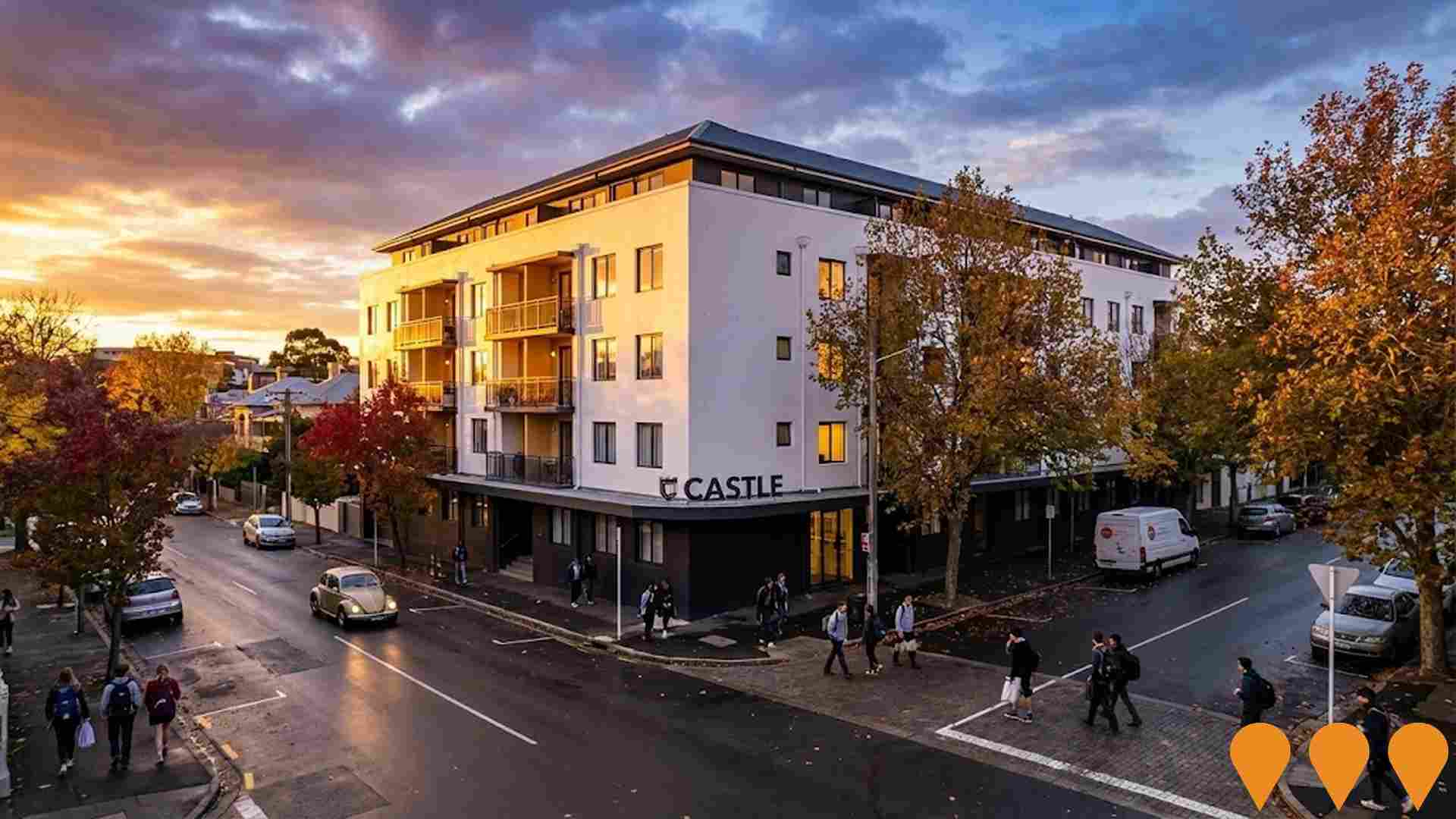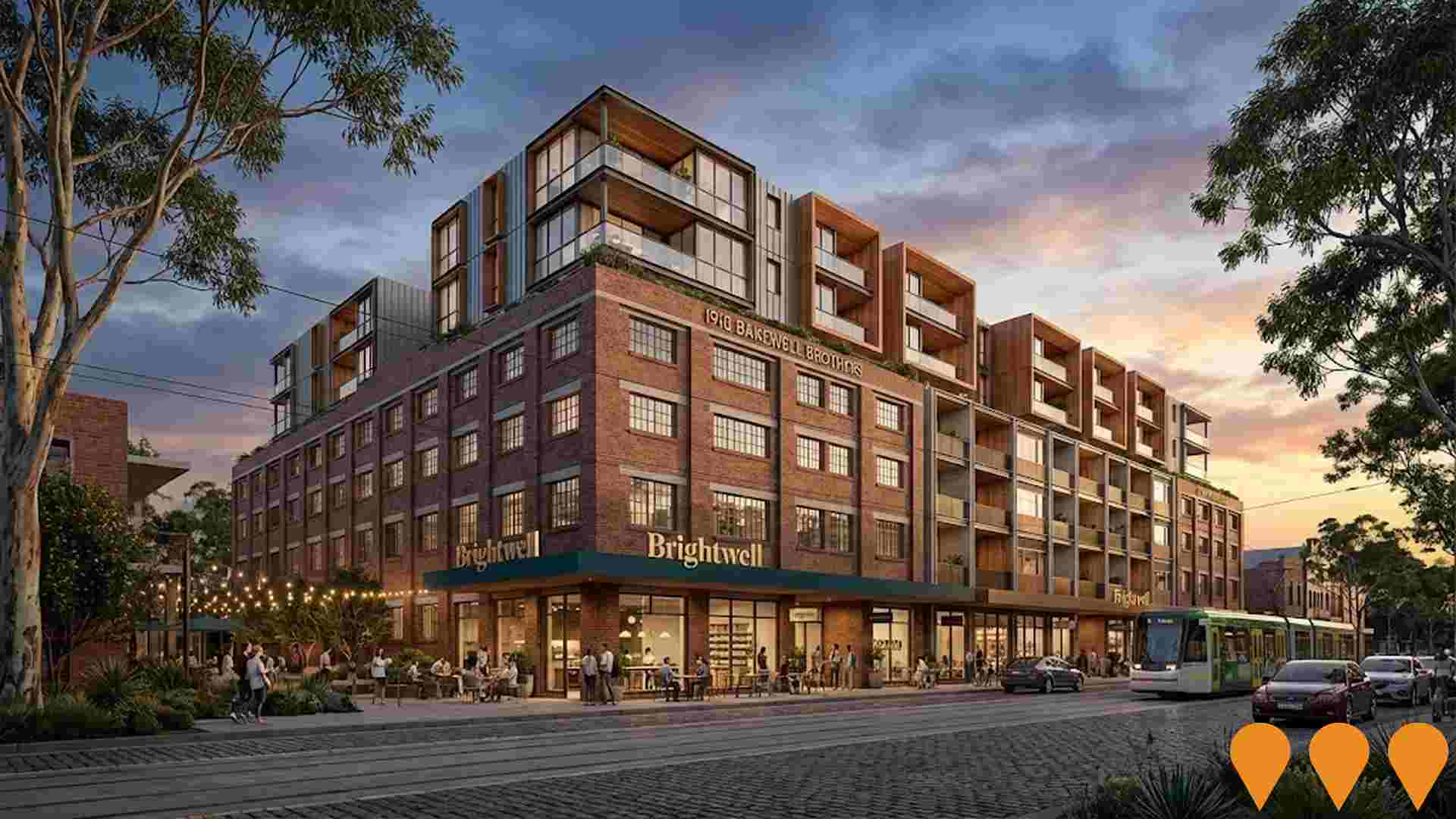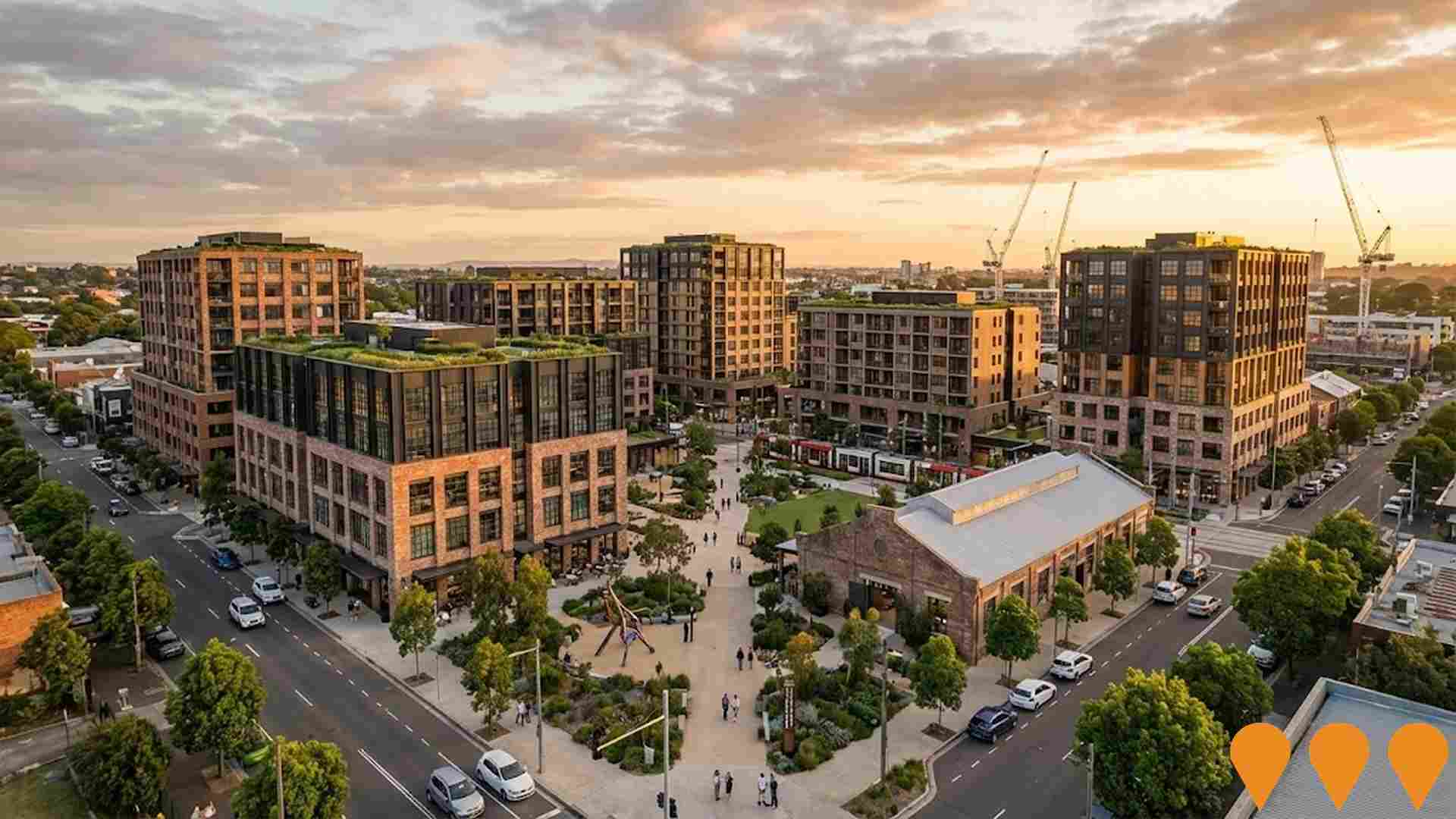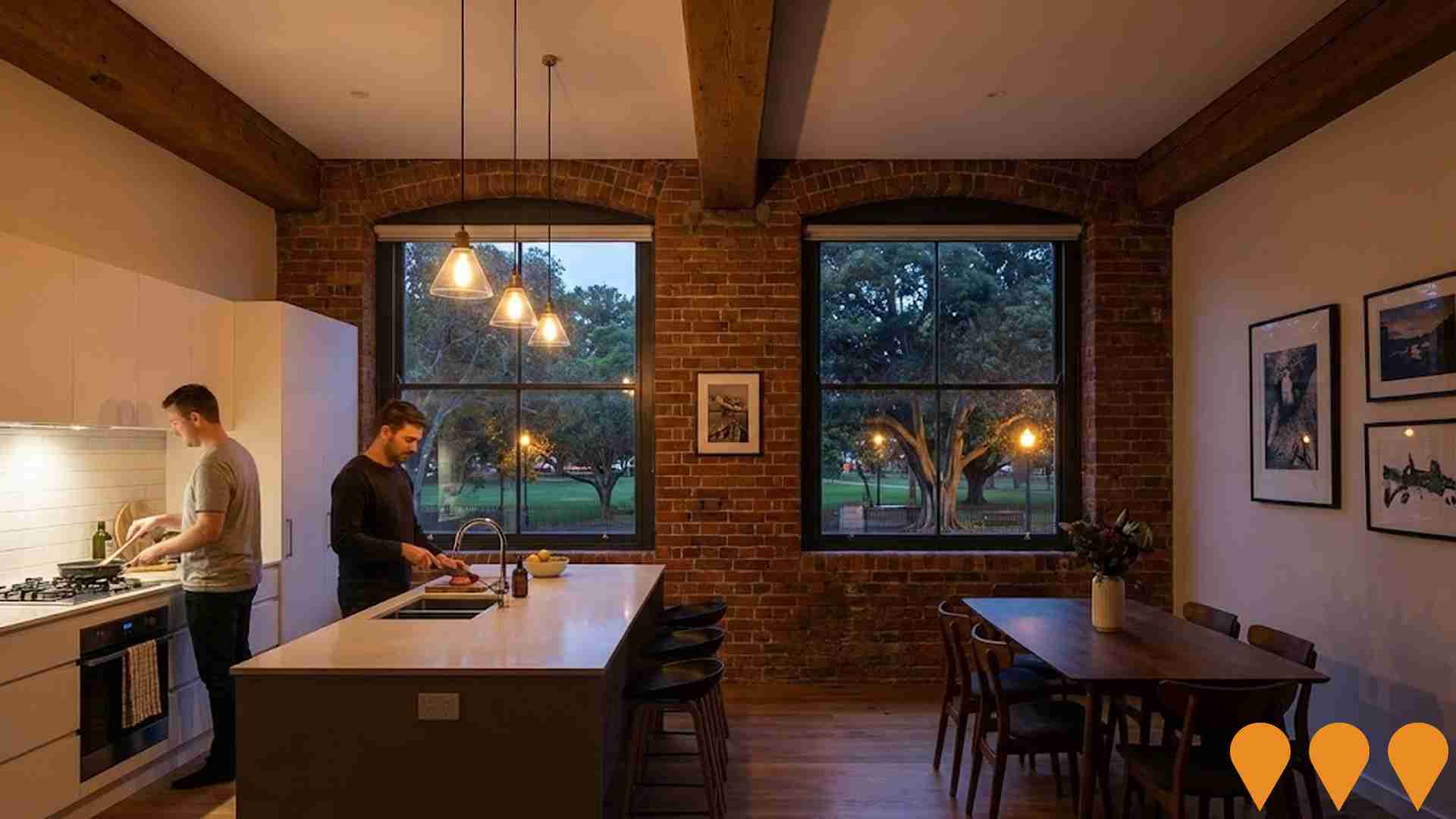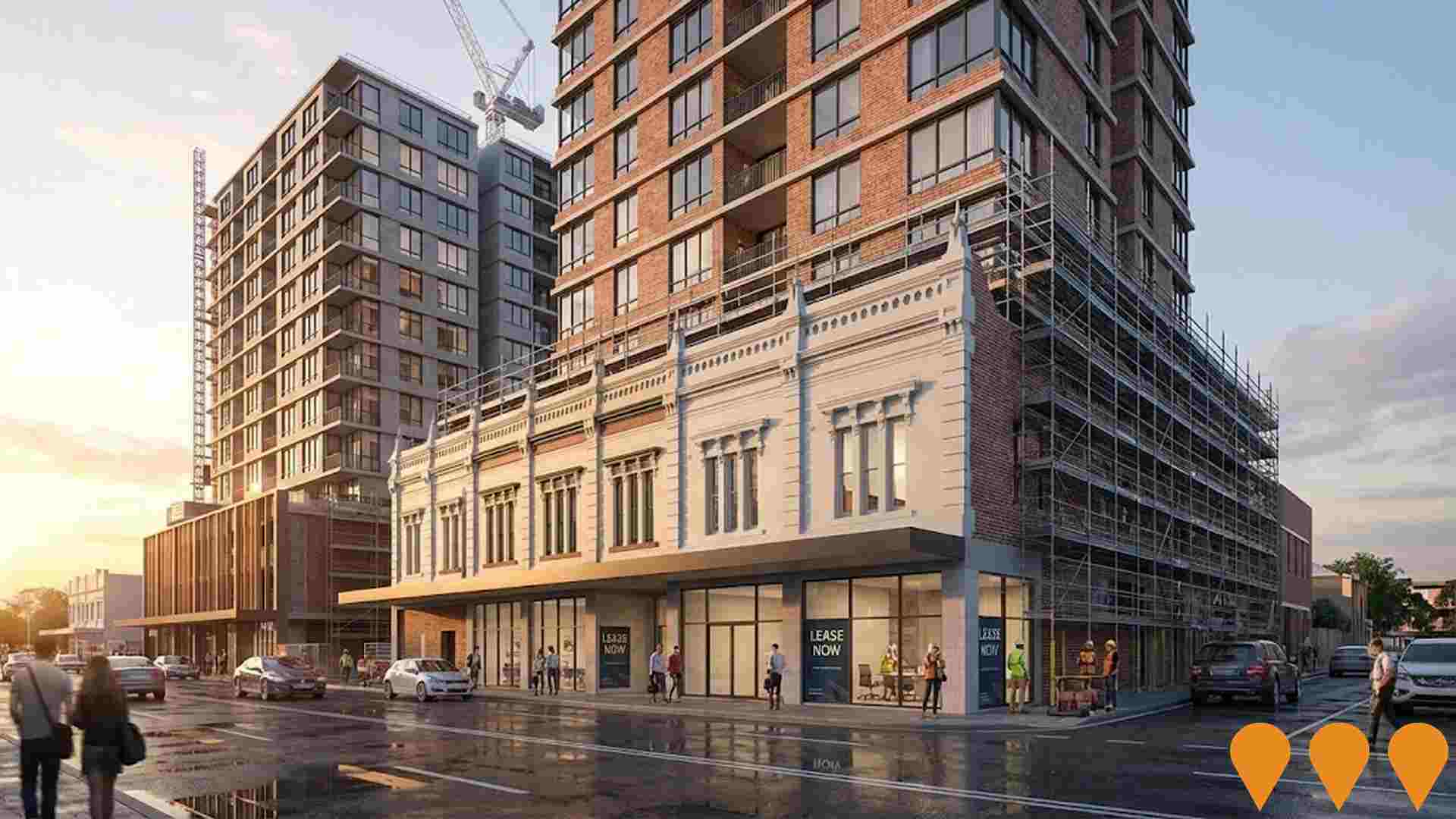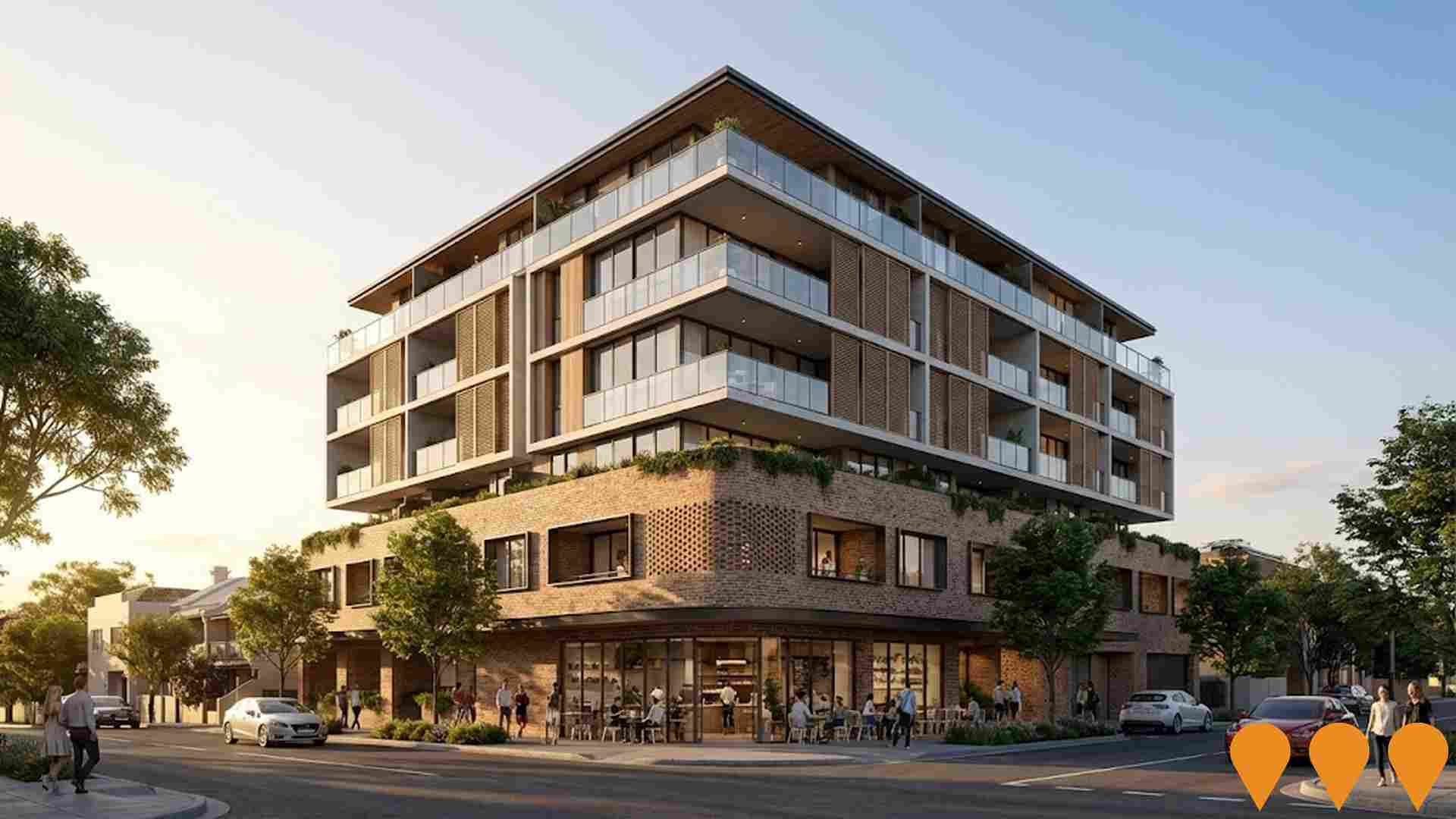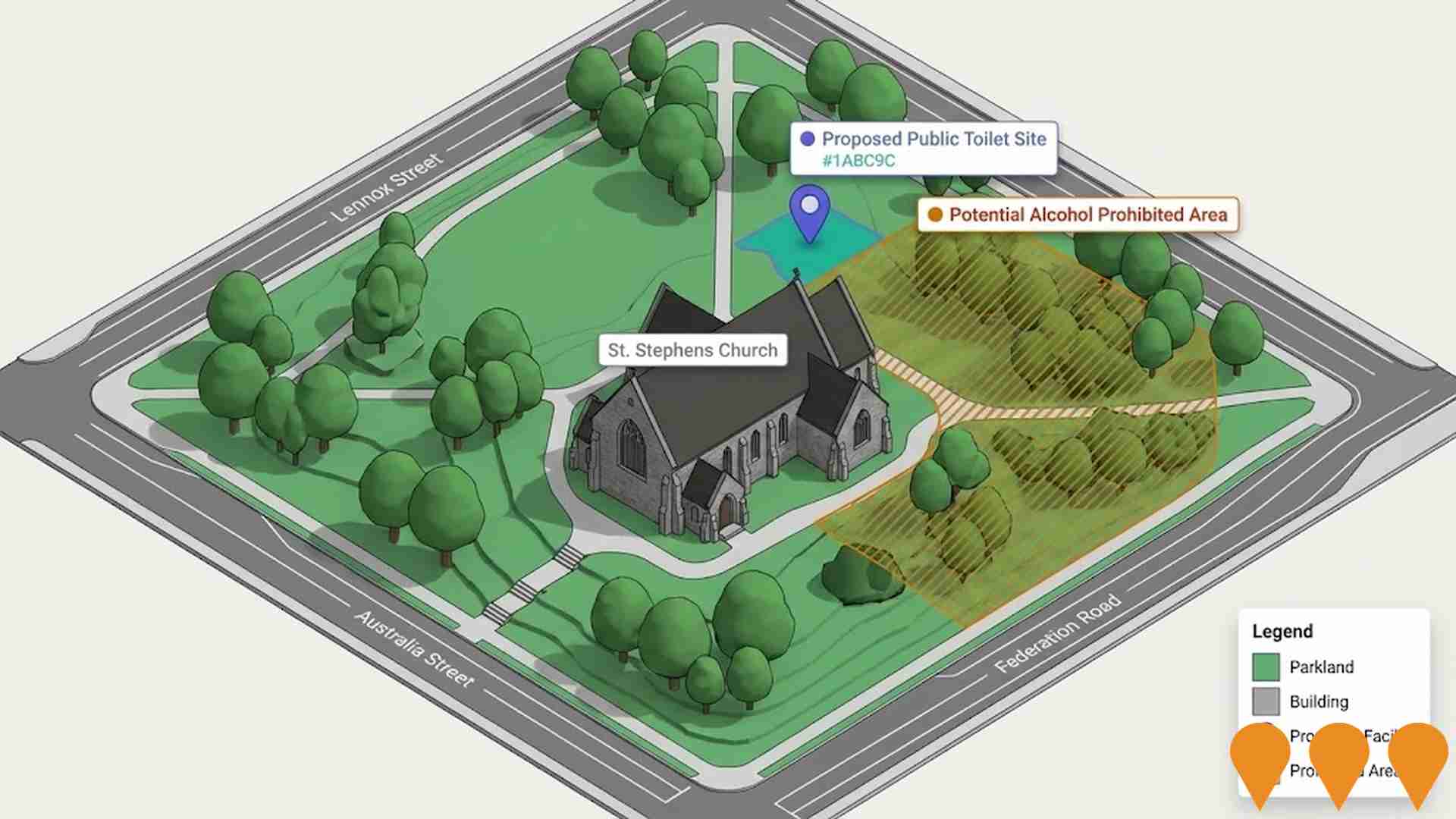Chart Color Schemes
This analysis uses ABS Statistical Areas Level 2 (SA2) boundaries, which can materially differ from Suburbs and Localities (SAL) even when sharing similar names.
SA2 boundaries are defined by the Australian Bureau of Statistics and are designed to represent communities for statistical reporting (e.g., census and ERP).
Suburbs and Localities (SAL) represent commonly-used suburb/locality names (postal-style areas) and may use different geographic boundaries. For comprehensive analysis, consider reviewing both boundary types if available.
est. as @ -- *
ABS ERP | -- people | --
2021 Census | -- people
Sales Activity
Curious about local property values? Filter the chart to assess the volume and appreciation (including resales) trends and regional comparisons, or scroll to the map below view this information at an individual property level.
Find a Recent Sale
Sales Detail
Population
An assessment of population growth drivers in Newtown reveals an overall ranking slightly below national averages considering recent, and medium term trends
Newtown's population was around 15,506 as of November 2025. This reflected an increase of 839 people from the 2021 Census figure of 14,667, indicating a growth rate of 5.7%. This change was inferred from the estimated resident population of 15,548 in June 2024 and an additional 15 validated new addresses since the Census date. The population density ratio was 9,876 persons per square kilometer, placing Newtown within the top 10% nationally assessed by AreaSearch, highlighting its land as a highly sought resource. Newtown's growth rate of 5.7% since the census was within 1.0 percentage point of the state's 6.7%, demonstrating competitive growth fundamentals. Overseas migration contributed approximately 86.3% of overall population gains during recent periods, driving primary growth in the area.
AreaSearch adopted ABS/Geoscience Australia projections for each SA2 area as released in 2024 with a base year of 2022. For areas not covered by this data, NSW State Government's SA2 level projections were utilized, released in 2022 with a base year of 2021. Growth rates by age group from these aggregations were applied to all areas for years 2032 to 2041. Future population trends project an above median growth for the area, with an expected increase of 2,386 persons to 2041 based on latest annual ERP population numbers, reflecting a total increase of 15.7% over the 17-year period.
Frequently Asked Questions - Population
Development
The level of residential development activity in Newtown is very low in comparison to the average area assessed nationally by AreaSearch
Newtown has received approximately six dwelling approvals per year. Between the financial years 2021 (FY-21) and 2025 (FY-25), 34 homes were approved, with an additional seven approved in FY-26 to date. Despite a recent population decline, housing supply has been adequate relative to demand, maintaining a balanced market with varied buyer choices.
New properties are constructed at an average cost of $406,000. In the current financial year, $5.0 million worth of commercial development approvals have been recorded. Compared to Greater Sydney, Newtown has significantly less development activity, being 92.0% below the regional average per person. This limited new construction often reinforces demand and pricing for existing dwellings, which is also under the national average, suggesting an established area with potential planning restrictions. In terms of building type, 25.0% are detached houses, while 75.0% are townhouses or apartments, indicating a trend towards denser development that caters to downsizers, investors, and first-time buyers. Notably, developers are constructing more detached housing than the existing pattern suggests (5.0% at Census), reflecting strong demand for family homes despite densification trends.
The area has approximately 3447 people per dwelling approval, indicating an established market. According to AreaSearch's latest quarterly estimate, Newtown is projected to add 2,428 residents by 2041. If current construction levels persist, housing supply may lag behind population growth, potentially intensifying buyer competition and supporting price growth.
Frequently Asked Questions - Development
Infrastructure
Newtown has very high levels of nearby infrastructure activity, ranking in the top 10% nationally
Thirty-three projects identified by AreaSearch are expected to impact the area significantly. Key initiatives include The Erskineville Project at Ashmore Precinct, Camperdown Memorial Rest Park Management Plan, Erskineville Village, and Royal Prince Alfred Hospital Redevelopment.
Professional plan users can use the search below to filter and access additional projects.
INFRASTRUCTURE SEARCH
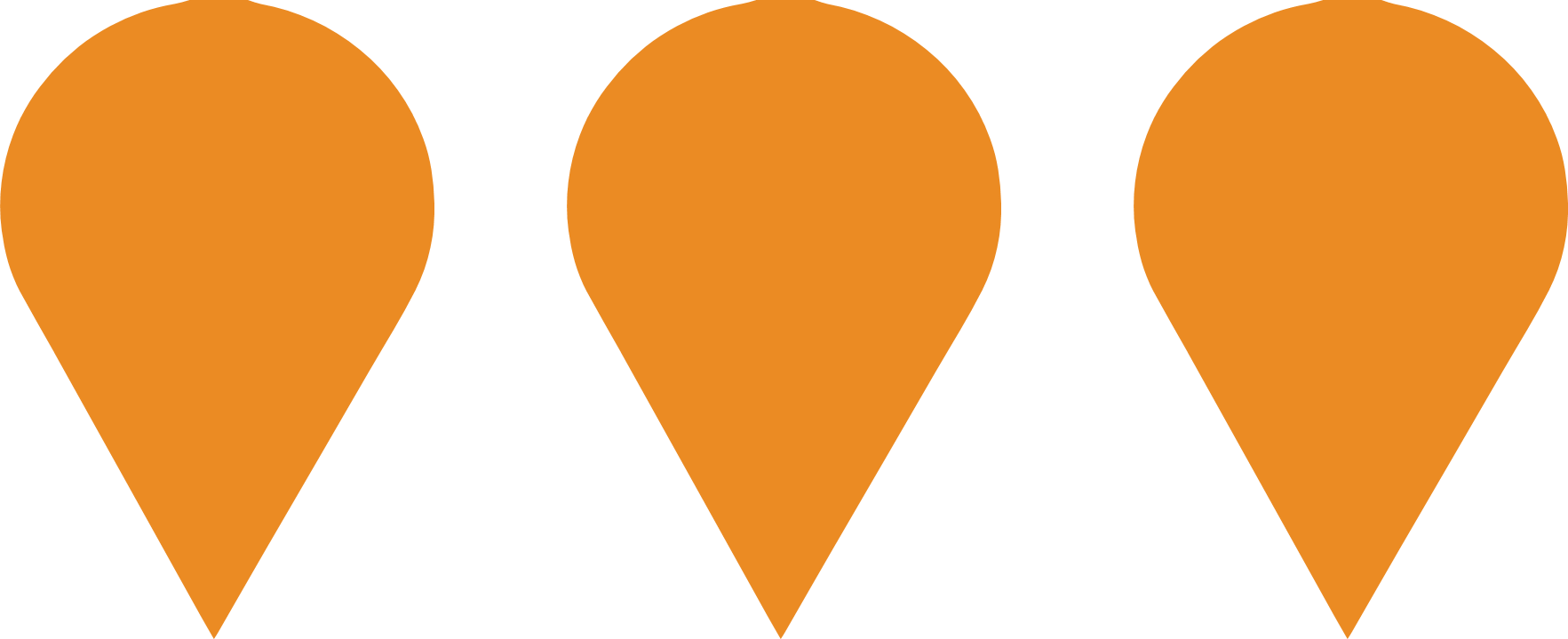 Denotes AI-based impression for illustrative purposes only, not to be taken as definitive under any circumstances. Please follow links and conduct other investigations from the project's source for actual imagery. Developers and project owners wishing us to use original imagery please Contact Us and we will do so.
Denotes AI-based impression for illustrative purposes only, not to be taken as definitive under any circumstances. Please follow links and conduct other investigations from the project's source for actual imagery. Developers and project owners wishing us to use original imagery please Contact Us and we will do so.
Frequently Asked Questions - Infrastructure
The Erskineville Project (Ashmore Precinct)
Major $2 billion urban renewal masterplan transforming the former Ashmore industrial estate. Features approximately 1,300 Build-to-Rent and Build-to-Sell residences, including the 'Lillian' stage. Includes a new 7,500sqm central park (McPherson Park), 20m wide pedestrian boulevard (Kooka Walk), and 5,000sqm of retail and dining.
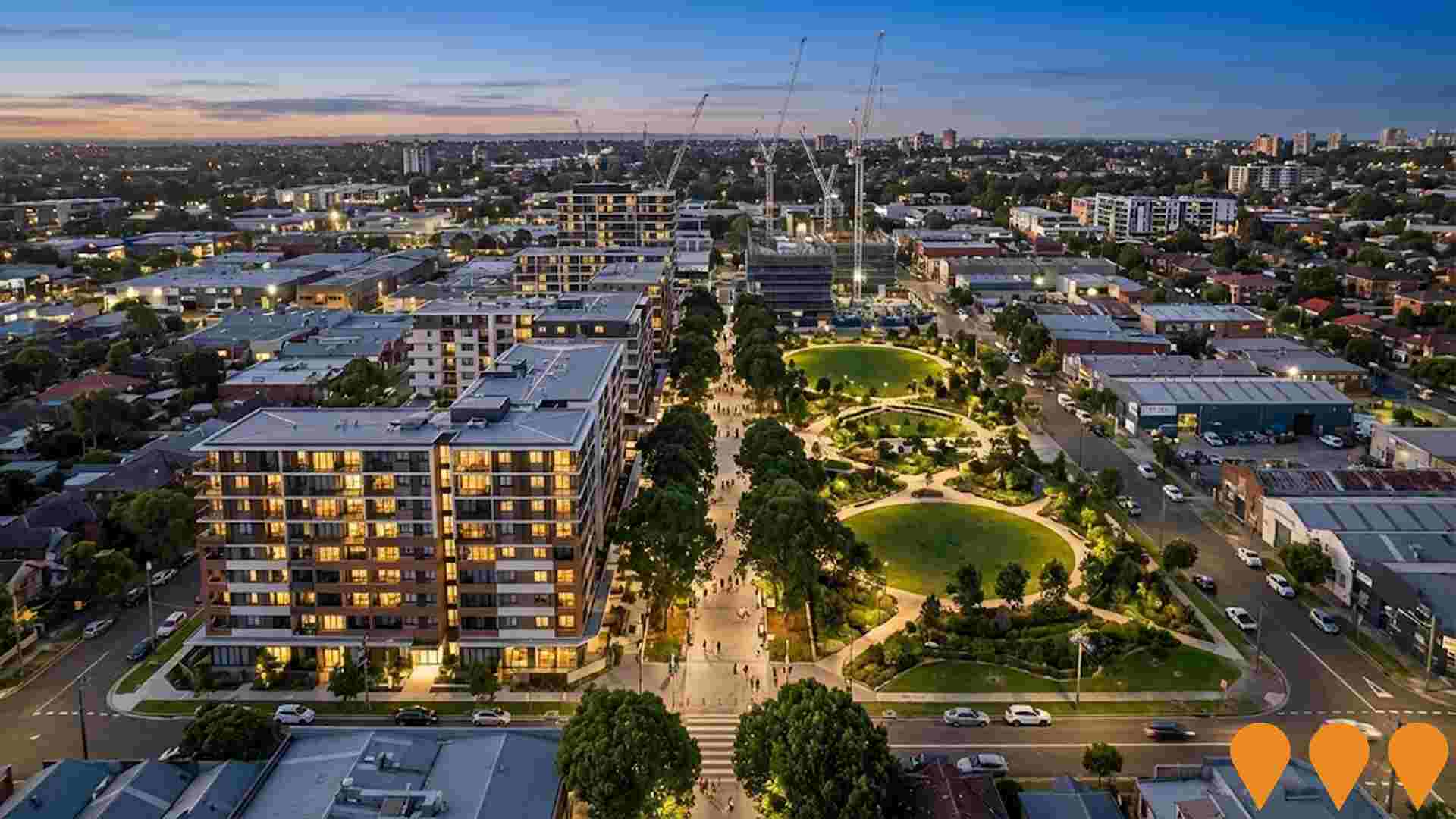
Erskineville Village
$2.3 billion urban renewal masterplan transforming a 50,000sqm former industrial site into a vibrant mixed-use community. The project includes approximately 1,075-1,300 new homes, primarily Build-to-Rent (BTR) apartments (including affordable housing) and build-to-sell townhouses/apartments, along with 5,000sqm of retail/hospitality and the 7,500sqm McPherson Park. Key elements include the Kooka Walk pedestrian boulevard. Development Application for the main BTR component was approved by the City of Sydney.
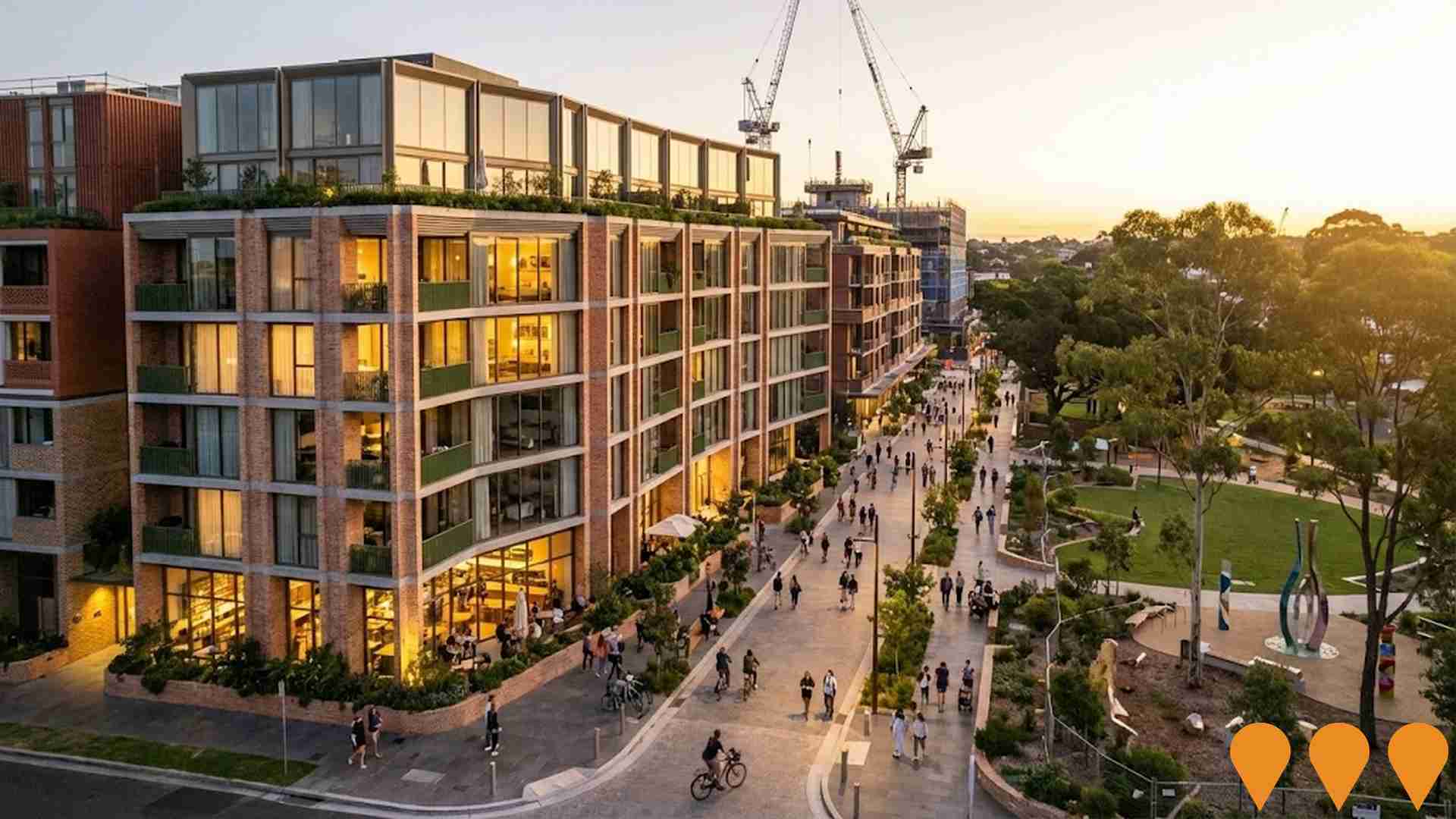
Royal Prince Alfred Hospital Redevelopment
The NSW Government has committed $940 million to the redevelopment of Royal Prince Alfred (RPA) Hospital. This is the most significant redevelopment in the hospital's 140-year history. The project is in the construction phase and includes a new 15-storey East Tower, vertical and horizontal expansions to existing structures, and major refurbishments. Key features are an expanded Emergency Department, enhanced Intensive Care Unit, new operating theatres, and expanded women's, babies', and paediatric units. The main works contract was awarded to CPB Contractors in March 2024.

Redfern North Eveleigh Paint Shop Sub-Precinct (formerly Clothing Store)
State Significant Precinct redevelopment of the former Clothing Store (now known as Paint Shop Sub-Precinct) at Redfern North Eveleigh. Delivered by Mirvac in partnership with Homes NSW, the project will deliver approximately 550 new homes (50% social and affordable), build-to-rent apartments, heritage adaptive reuse of the historic Paint Shop and Clothing Store buildings, new public open space, community facilities and improved pedestrian and cycle links. Part of the broader Redfern North Eveleigh urban renewal program and Tech Central innovation district.
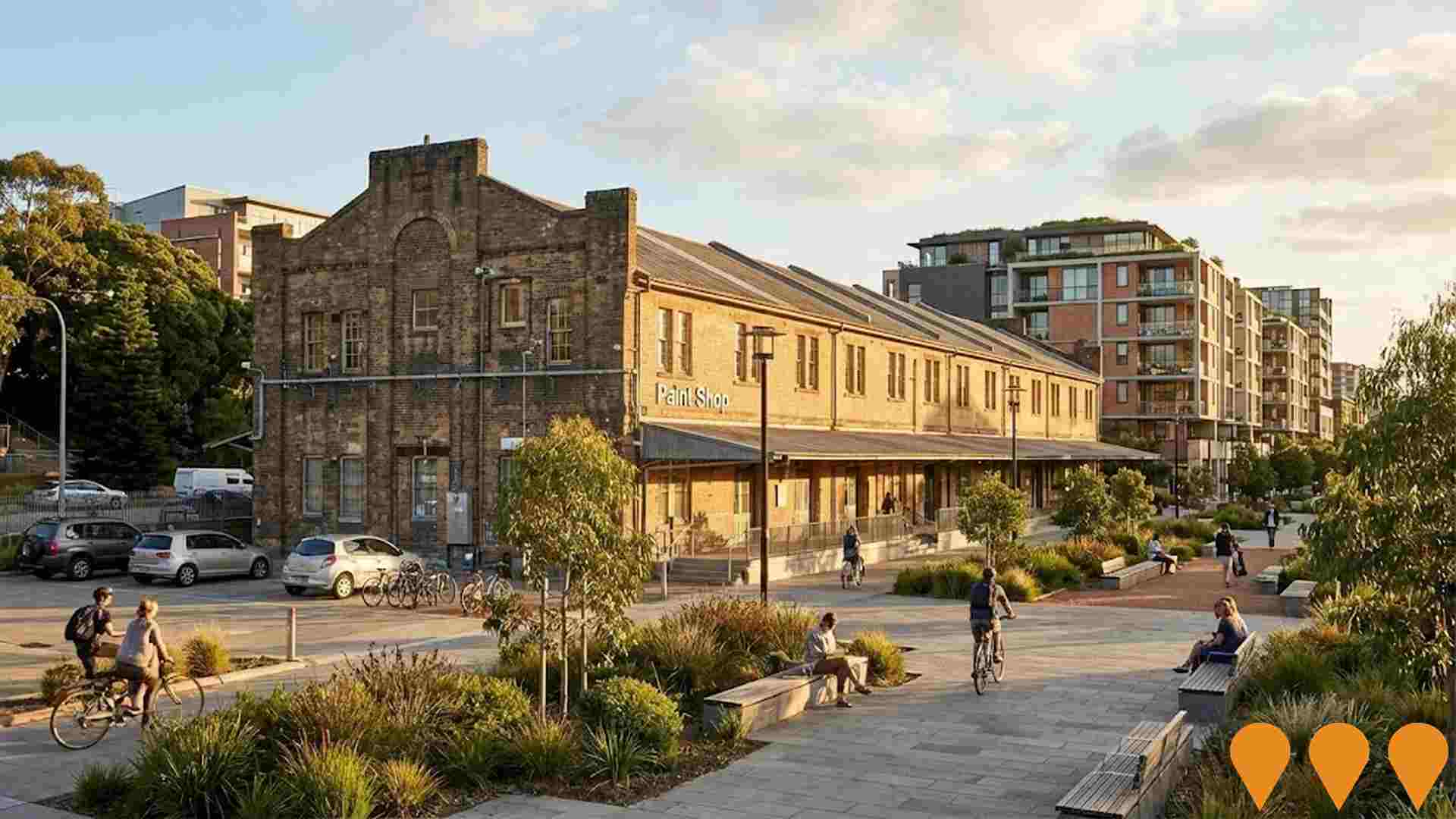
Landcom Camperdown Mixed-Use Development
NSW Government's $450 million investment to transform the former WestConnex construction site into a mixed-use development featuring approximately 500 apartments. At least 200 build-to-rent apartments will be offered to essential workers (nurses, teachers, police, firefighters) at discounted market rent, with remaining apartments being a mix of market sale and affordable rental housing. The development will include ground-floor retail and commercial spaces, landscaped outdoor areas, and new pedestrian links.
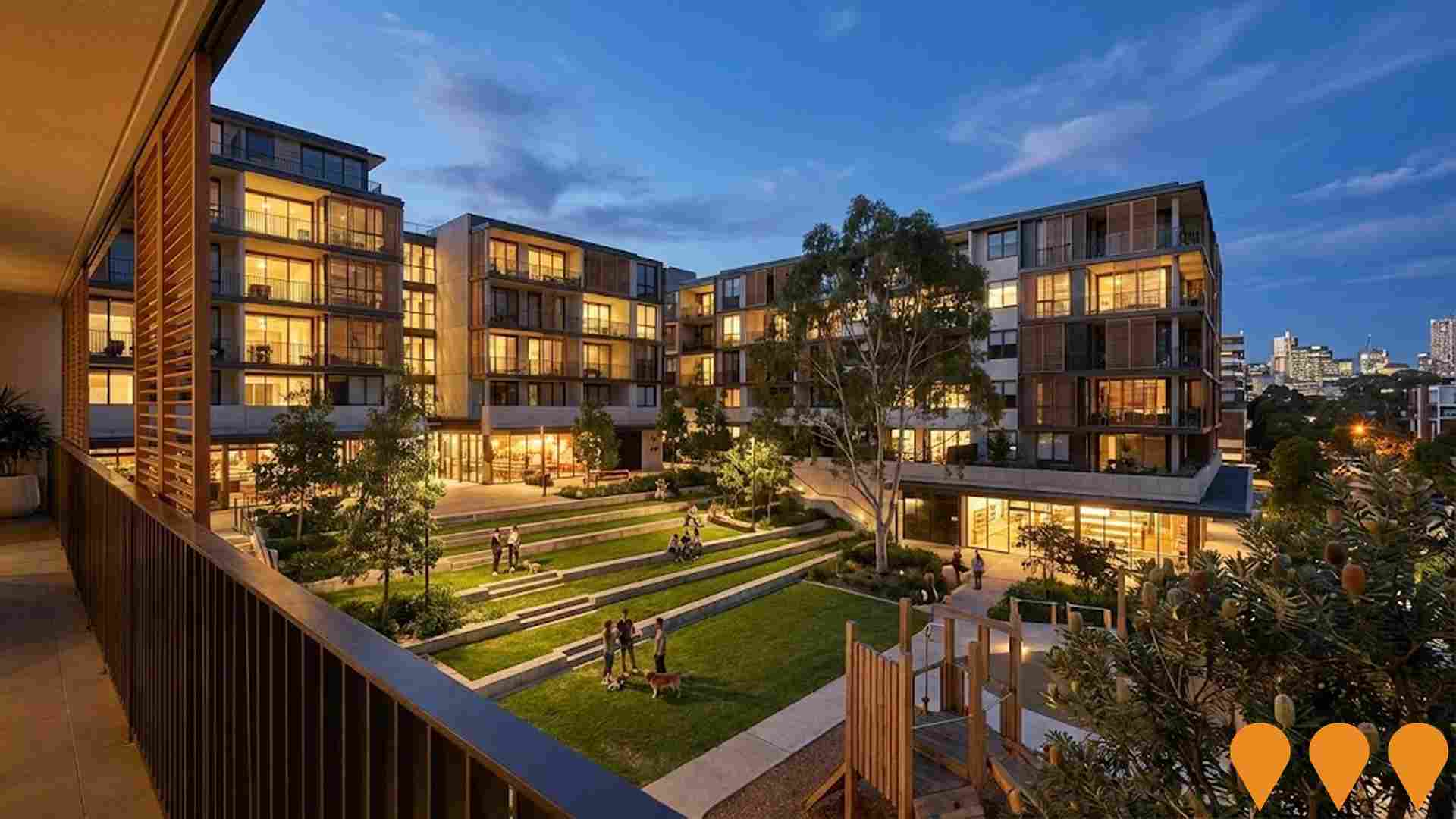
University of Sydney Biomedical Accelerator (SBA)
The Sydney Biomedical Accelerator, located at Royal Prince Alfred Hospital and University of Sydney's Camperdown campus, is a proposed precinct for health, education, and research, featuring new facilities, labs, and buildings. Co-funded partnership project between University of Sydney, Sydney Local Health District and NSW Government.
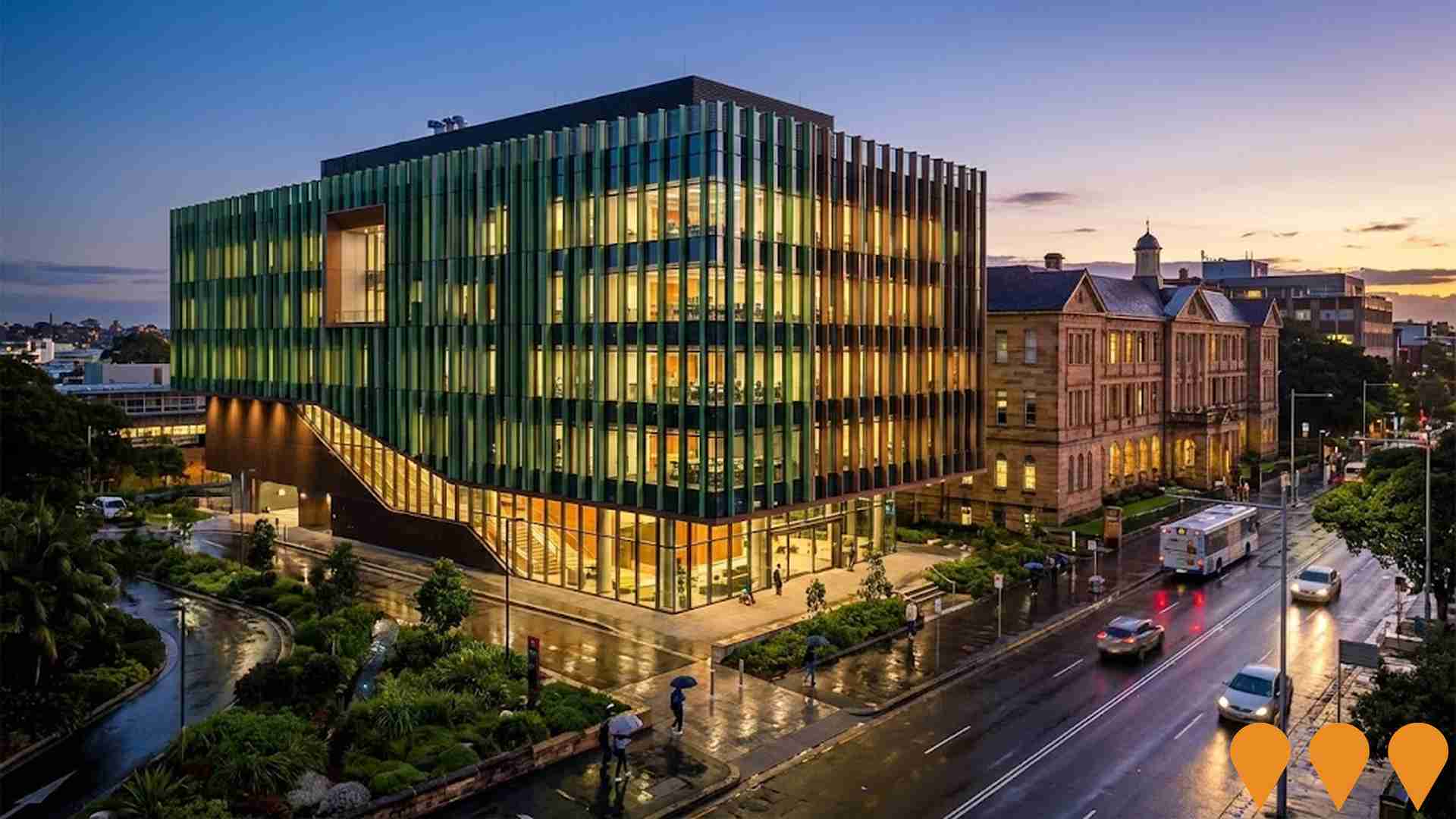
Ross Street Teaching and Learning Hub
Construction of a new five-level multi-disciplinary general teaching space building at the University of Sydney Camperdown Campus, designed by BVN Architecture. The facility will accommodate up to 1,500 students and 30 staff, providing over 2,500 square meters of formal learning space and 1,200 square meters of informal learning space. The building features a modular facade design with varied expressions on each elevation, utilizing light-colored brick panels and glazing to create a contemporary gateway to the campus. Ground floor amenities include a student help desk, food and beverage outlet, and informal learning areas. The development replaces existing demountable buildings and serves as a welcoming northern gateway to the campus.
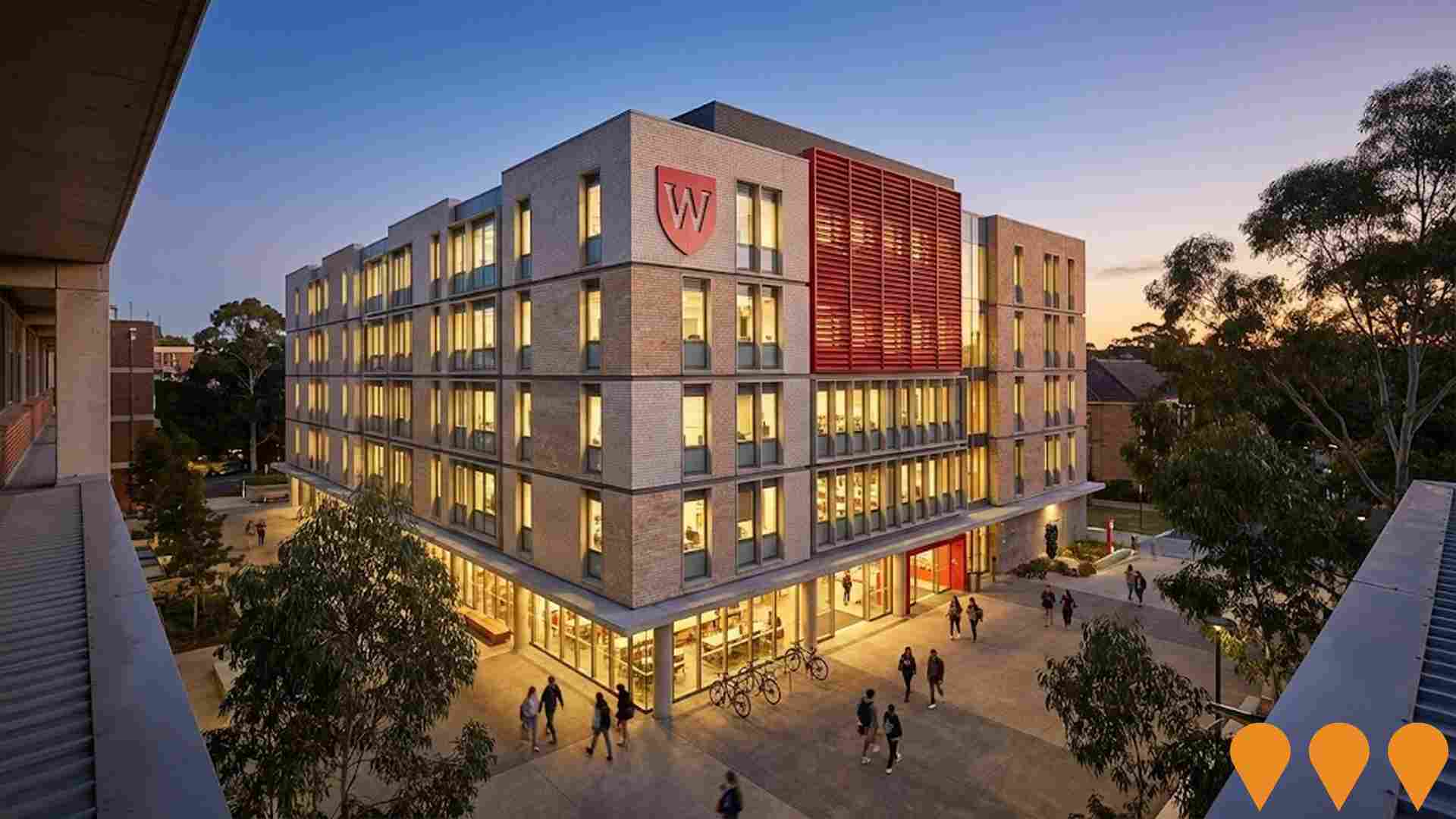
University of Sydney Campus Transformation
Ongoing transformation of the University of Sydney's Camperdown/Darlington campus including the recent opening of the Chau Chak Wing Museum and ongoing developments in engineering, science, and student accommodation facilities. The project enhances research capabilities and student experience.
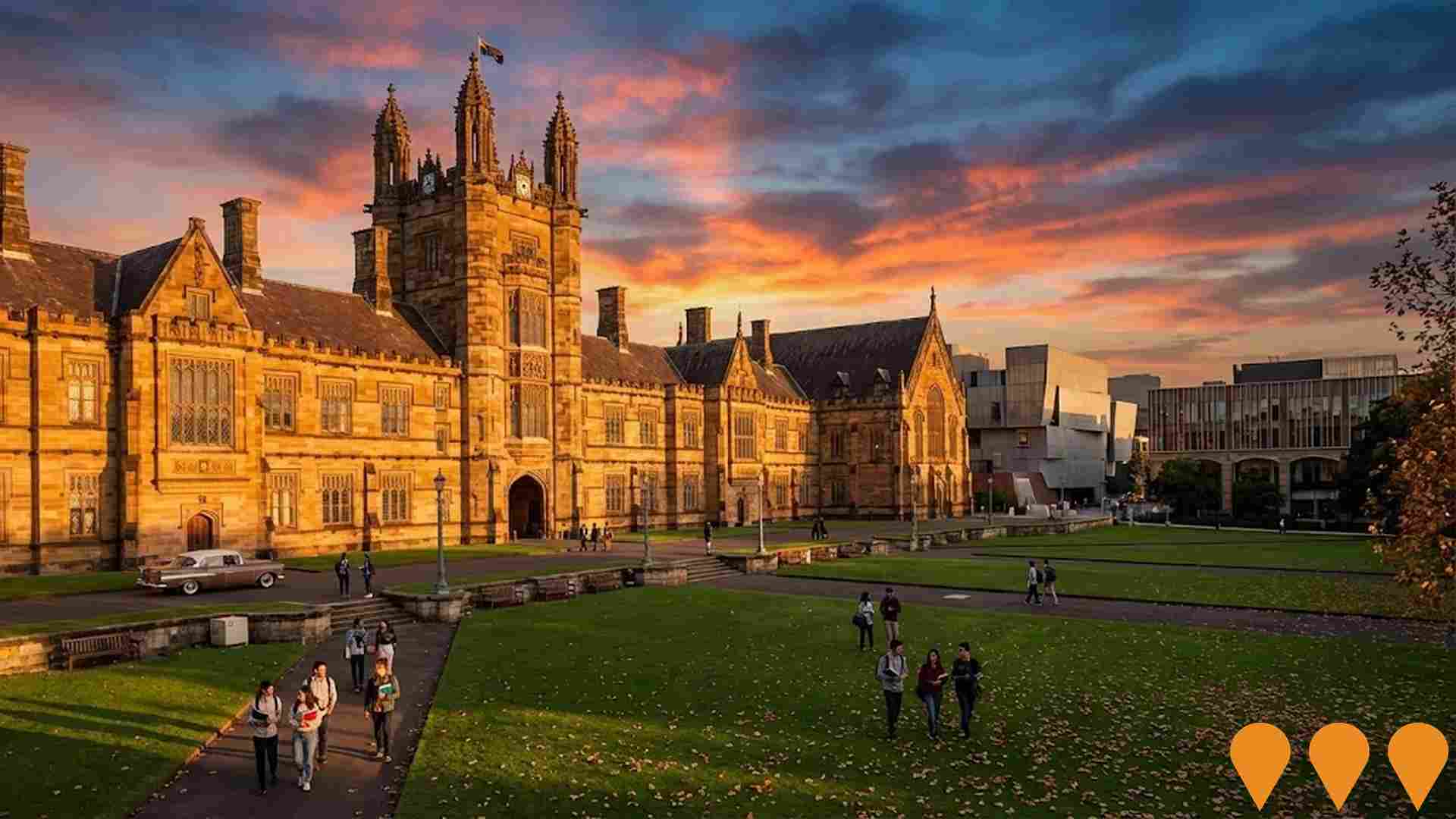
Employment
Newtown has seen below average employment performance when compared to national benchmarks
Newtown has a highly educated workforce with notable representation in the technology sector. Its unemployment rate was 5.1% as of September 2025.
In this month, 10,236 residents were employed while the unemployment rate was 0.9% higher than Greater Sydney's rate of 4.2%. Workforce participation in Newtown was at 74.6%, surpassing Greater Sydney's rate of 60.0%. Key industries for employment among residents are professional & technical, health care & social assistance, and education & training. The area shows strong specialization in professional & technical services with an employment share 1.6 times the regional level.
Conversely, construction has lower representation at 4.1% compared to the regional average of 8.6%. While local employment opportunities exist, many residents commute elsewhere for work based on Census data. In the 12-month period ending September 2025, Newtown's labour force decreased by 1.4%, and employment declined by 1.6%, leading to a rise in unemployment rate of 0.1 percentage points. This contrasts with Greater Sydney where employment grew by 2.1% and labour force expanded by 2.4%. State-level data from NSW as of 25-Nov-25 shows employment contracted by 0.03% (losing 2,260 jobs), with the state unemployment rate at 3.9%, favourable compared to the national unemployment rate of 4.3%. Jobs and Skills Australia's national employment forecasts from May-25 project a 6.6% increase over five years and 13.7% over ten years. Applying these projections to Newtown's employment mix suggests local employment should increase by 7.3% over five years and 14.6% over ten years, according to simple weighting extrapolation for illustrative purposes.
Frequently Asked Questions - Employment
Income
The economic profile demonstrates exceptional strength, placing the area among the top 10% nationally based on comprehensive AreaSearch income analysis
The median taxpayer income in Newtown SA2 was $68,874, with an average of $94,610 according to postcode level ATO data aggregated by AreaSearch for the financial year 2022. Nationally, this is exceptionally high, contrasting with Greater Sydney's median income of $56,994 and average income of $80,856. Based on Wage Price Index growth of 12.61% since financial year 2022, current estimates would be approximately $77,559 (median) and $106,540 (average) as of September 2025. Census data reveals that household, family and personal incomes all rank highly in Newtown, between the 84th and 94th percentiles nationally. The largest segment comprises 29.8% earning $1,500 - $2,999 weekly (4,620 residents), consistent with broader trends across the broader area showing 30.9% in the same category. Economic strength emerges through 39.4% of households achieving high weekly earnings exceeding $3,000, supporting elevated consumer spending. High housing costs consume 21.0% of income, though strong earnings still place disposable income at the 76th percentile and the area's SEIFA income ranking places it in the 9th decile.
Frequently Asked Questions - Income
Housing
Newtown displays a diverse mix of dwelling types, with above-average rates of outright home ownership
The latest Census evaluation showed that Newtown's dwelling structure comprised 5.1% houses and 94.9% other dwellings (semi-detached, apartments, 'other' dwellings). In comparison, Sydney metro had 2.3% houses and 97.7% other dwellings. Home ownership in Newtown was at 17.4%, with the rest either mortgaged (23.9%) or rented (58.6%). The median monthly mortgage repayment in Newtown was $3,000, higher than Sydney metro's average of $2,705 and significantly above the national average of $1,863. The median weekly rent figure in Newtown was $550, matching Sydney metro's figure but substantially higher than the national average of $375.
Frequently Asked Questions - Housing
Household Composition
Newtown features high concentrations of group households and lone person households, with a higher-than-average median household size
Family households constitute 49.6% of all households, including 15.3% couples with children, 28.0% couples without children, and 5.1% single parent families. Non-family households account for the remaining 50.4%, with lone person households at 36.6% and group households comprising 13.9%. The median household size is 2.1 people, larger than the Greater Sydney average of 1.9.
Frequently Asked Questions - Households
Local Schools & Education
Newtown shows strong educational performance, ranking in the upper quartile nationally when assessed across multiple qualification and achievement indicators
Newtown's residents aged 15+ have a higher proportion with university qualifications (59.7%) compared to Australia (30.4%) and NSW (32.2%). Bachelor degrees are the most common (38.0%), followed by postgraduate qualifications (17.7%) and graduate diplomas (4.0%). Vocational pathways account for 18.5%, with advanced diplomas at 9.1% and certificates at 9.4%. Residents' educational participation is high, with 28.9% currently enrolled in formal education.
This includes 14.0% in tertiary education, 5.0% in primary education, and 3.8% pursuing secondary education.
Frequently Asked Questions - Education
Schools Detail
Nearby Services & Amenities
Transport
Transport servicing is high compared to other areas nationally based on assessment of service frequency, route connectivity and accessibility
Transport analysis shows 27 active stops operating in Newtown, offering a mix of train and bus services. These stops are served by 22 individual routes, collectively facilitating 11,789 weekly passenger trips. Transport accessibility is rated excellent, with residents typically located 144 meters from the nearest stop.
Service frequency averages 1,684 trips per day across all routes, equating to approximately 436 weekly trips per individual stop.
Frequently Asked Questions - Transport
Transport Stops Detail
Health
Newtown's residents are extremely healthy with both young and old age cohorts seeing low prevalence of common health conditions
Analysis shows strong health metrics throughout Newtown. Both young and old age cohorts have low prevalence of common health conditions.
Private health cover is exceptionally high at approximately 69% of the total population (10,745 people), compared to the national average of 55.3%. Mental health issues impact 13.5% and asthma impacts 8.3% of residents. 69.9% declare themselves completely clear of medical ailments, compared to 77.4% across Greater Sydney. The area has 8.8% of residents aged 65 and over (1,361 people). Health outcomes among seniors are above average, broadly in line with the general population's health profile.
Frequently Asked Questions - Health
Cultural Diversity
The level of cultural diversity witnessed in Newtown was found to be above average when compared nationally for a number of language and cultural background related metrics
Newtown's population was found to be more linguistically diverse than most local markets, with 17.9% speaking a language other than English at home. Born overseas, 32.3% of Newtown residents were not born in Australia. Christianity is the dominant religion in Newtown, comprising 23.2% of its population.
Notably, Judaism's representation in Newtown (1.1%) is equal to that across Greater Sydney. The top three ancestry groups in Newtown are English (24.1%), Australian (18.7%), and Irish (11.4%). Compared to regional averages, Australian ancestry is significantly higher in Newtown. Other notable differences include French (Newtown: 1.1%, Regional: 1.1%), Spanish (Newtown: 0.8%, Regional: 1.0%) and Welsh (Newtown: 0.8%, Regional: 0.6%) ancestries.
Frequently Asked Questions - Diversity
Age
Newtown hosts a young demographic, positioning it in the bottom quartile nationwide
Newtown's median age is 34 years, which is lower than Greater Sydney's average of 37 years and Australia's average of 38 years. Compared to Greater Sydney, Newtown has a higher percentage of residents aged 25-34 (28.8%) but fewer residents aged 5-14 (5.6%). This concentration of 25-34 year-olds is significantly higher than the national average of 14.5%. Between the 2021 Census and now, the percentage of residents aged 15-24 has increased from 13.1% to 15.9%, while the percentage of those aged 45-54 has decreased from 13.5% to 11.6%. By 2041, population forecasts indicate substantial demographic changes for Newtown. The 25-34 age group is projected to grow by 52%, adding 2,321 residents to reach a total of 6,793. In contrast, population declines are projected for the 45-54 and 35-44 age groups.
